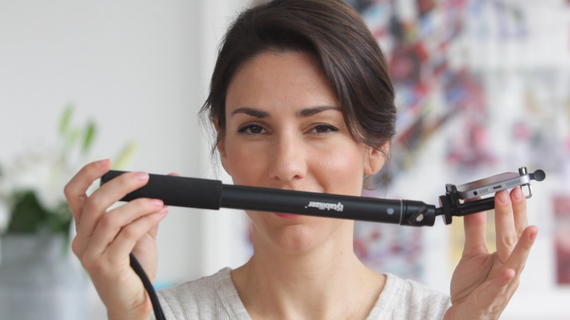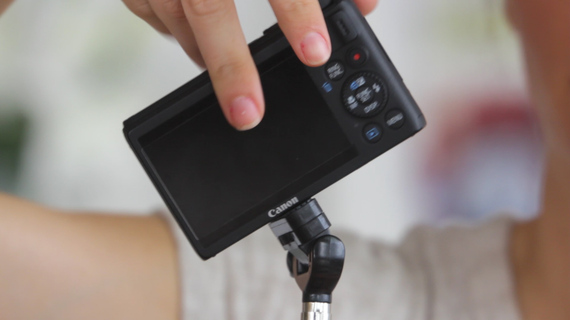
Cyber scrooges utnytte alle typer digitale enheter, sosiale
medieplattformer og mobilprogrammer utnytte brukernes distraksjon under denne
travle tiden av året. For å opplyse offentligheten og bedrifter på de mest
populære måtene kriminelle svindel brukere i løpet av ferien når de surfer
deres digitale enheter, kom McAfee opp med en liste over 12 ting å være
oppmerksom på.
E-handel salg er forventet for å stige mellom 8 til 11% i år til
mer enn $105 milliarder, 56% av smarttelefonen eiere skal bruke enheten mens
shopping. Med fire av fem amerikanske husholdninger med Internett banktjenester
transaksjoner online, og fleste av bedrifter som støtter BYOD, er å være
årvåken om sikker brukeratferd viktigere enn noensinne.
"Som folk butikk, bank og dele mer mens du er på farten, de
åpne seg opp trusler fra kriminelle som ønsker å stjele personlig
informasjon," sa Gary Davis, sjef forbruker sikkerhet Evangelist hos McAfee.
"Forstå hva å passe på og hvor å riktig sikre sine enheter gir brukerne
tilleggsinformasjon å beskytte sine digitale liv."
Her er topp 12 svindel:
1. Du har fått Mail! Som ferie salg fortsette å
migrere online, øker risikoen for shipping varsel og svindelforsøk. Om malware
er en helårig risiko, siden mange mennesker gjør ferien shopping på nettet,
brukere er mer tilbøyelige til å klikke en shipping-varsel eller phishing
e-post fordi de tror det er legit.
2. Villedende reklame: Alle søker etter stjeler og
avtaler i ferier. Være skeptisk når online shopping for årets mest
ettertraktede produkter. Farlige koblinger, falske konkurranser på sosiale
medier og falsk gavekort er bare noen av måtene svindlere prøver å stjele
informasjon.
3. Chilling veldedighetsorganisasjoner: Tis sesongen for å gi. I feriene
gir mange tilbake ved å donere til sin favoritt veldedighet. Vær på vakt mot
falske veldedighetsorganisasjoner som kan komme via e-post, eller deles virally
gjennom sosiale medier.
4. Kjøper Beware: Det er bare noen svindel som
brukere har ingen kontroll over. Poenget med salg malware som fører til utsette
kredittkortinformasjon faller i denne kategorien. Pass på å sjekke kontoutdrag
nøye og bo på nyhetene for å være oppmerksom og forberedt.
5. iScams: nye mobile apps for Android og
iOS enheter er lagt til hver dag. Pluss med fremskritt innen teknologi,
mobilenhet kan Kontrollere temperaturen i hjem, holde brukere som er koblet til
sosiale medier og legge til kule filtre til feriebilder, for eksempel. Selv de
offisielle ser eller festlig apps, men kan være skadelig og tilgang til
personlig informasjon.
6. Få kardet: Digital e-kort til å spre ferie
hurrarop er morsom, enkel og viktigst, gjennomtenkt. Men noen
"Julehilsener," er egentlig "Merry Malware!" fra hackere.
Velkjente ekort nettsteder er trygge, men være skeptisk til potensielle svindel
som kan spørre en nedlasting av malware på enheten.
7. Ferie reise svindel: Fake online reise avtale er
overflod, men det er også risiko som finnes når ankommer for destination
inkludert spyware tilgang nformation gjennom logge på infiserte PCer på stedet.
8. Bank Robocall svindel: Når ferie utgifter øker og
brukere er klar over misbruk til bankkontoer og kredittkort, hackere bruke
dette som en mulighet. I de fleste tilfeller forbrukere får falske ringer fra
en av disse institusjonene fra en automatisert (eller ikke)
"Sikkerhetsagenten" om at brukerkontoen har vært utsatt, og ber om
personlige opplysninger inkludert passordet, gjøre endringer.
9. ATM Skimming: Kriminelle får informasjon i
minibanker av installere skimming enheter å stjele data fra en kortet
magnetstripen og enten bruker et videokamera eller tastaturet overlegg for å
fange PIN. En enkel løsning: se nøye på ATM for noe mistenkelig og dekke
tastaturet når du skriver inn PIN-koden.
10. År i gjennomgang feller: mange nyhetstjenester
kapitalisere på ferier ved å utvikle "År i Review" artikler. Selskaper bør advare
sine ansatte om risikoen ved å klikke på disse typer koblinger fra deres arbeid
e-post fra ikke-klarerte kilder. Koblinger fra falske kilder kan infisere og
akkord sikkerheten av selskapet enheter.
11. BYO...Enhet: Med en økning i reise aktivitet
(boblende!) over opptatt ferien, folk er mer sannsynlig å glemme sine
smarttelefoner på offentlige steder. Mens det er upraktisk for dem, er det også
vei for hackere å få tilgang til sensitive personlige opplysninger og
forretningsdata hvis riktige sikkerhetstiltak ikke er på plass.
12. Dårlig USB Blues: I løpet av ferien, kan det være
en økning i Gavekurver fra leverandører som ønsker å fortsette å gjøre
forretninger med der selskapet i det kommende året. En av de mest populære
varene i disse kurvene omfatter merkede USBs. Vokt dere for tillater ansatte å
bruke disse som undetectable malware er noen ganger forhåndsinstallert på dem.
Forske: Om online shopping, donere til
veldedige organisasjoner, eller sporing gaver, forske for å sikre at selskapet
er lovlig. Gå til selskapets hjemmeside til sikre at det er en ekte business
stedet for å klikke en kobling i en e-post for mye shopping, besøk nettstedet
direkte
Analysere Apps: Før du laster ned en ny app, gå
gjennom den for å sikre nøyaktig hva som skjer på enheten. Bare laste ned
programmer fra en offisielle app store og ikke en tredje part. Hvis programmet
ber om mange tillatelser, ikke Last ned. Det kan be om tilgang til informasjon
på telefonen eller tavle som er privat, og er sikkert mer enn programmet må
utføre. Bruke antivirusprogramvare.
Bank noye: Folk bruker mer penger i løpet
av ferien enn de gjør hele året. Cyber kriminelle kan prøve og bruke dette
faktum til lettere svindel forbrukere. Hvis en bank kaller
informasjonsforespørsler, henge opp og komme tilbake gjennom offisielle hjem
telefonnummer. Det er viktig å snakke til banken gjennom offisielle antallet å
vite det er legitimt. Når uttak av penger, være oppmerksom på omgivelsene. Hvis
alt ser galt, lar. Inspisere ATM for løse ledninger eller maskindeler som kan
ha blitt forfalske med. Dette kan indikere hackere prøver å fikse maskinen for
deres fordel.
Oppholdet informert: Høytiden eller ikke, cyber
svindel og identitetstyveri skje veldig ofte gjennom hele året. Nå som shopping
sesongen har begynt og faren er økt, er det viktig å hele tiden være klar over
nye cyber-angrep eller trusler i markedet. Følg nyheter nyheter for nye
sikkerhetsbrudd være våkne og være på toppen av spillet. Bare Kjøp ferie gaver
til forhandlere som ikke har blitt kompromittert. Sjekk kontoutdrag ofte.
Utdanne dine ansatte: Kontroller at ansatte vet
hvordan å beskytte seg og sine enheter som kan inneholde eller koble til
sensitive Selskapsopplysninger-hele tiden, men spesielt i denne hektisk ferie
reise og shopping sesongen når enheter er mer sannsynlig å bli feilplassert og
folk la vakt. Sikre enheter er sikret med komplekse passord til smartphones,
tabletter eller bærbare datamaskiner. Dele de vanligste svindel som finnes
rundt høytiden med ansatte slik at de vet hva du være på utkikk etter og
hvordan å holde seg beskyttet.














